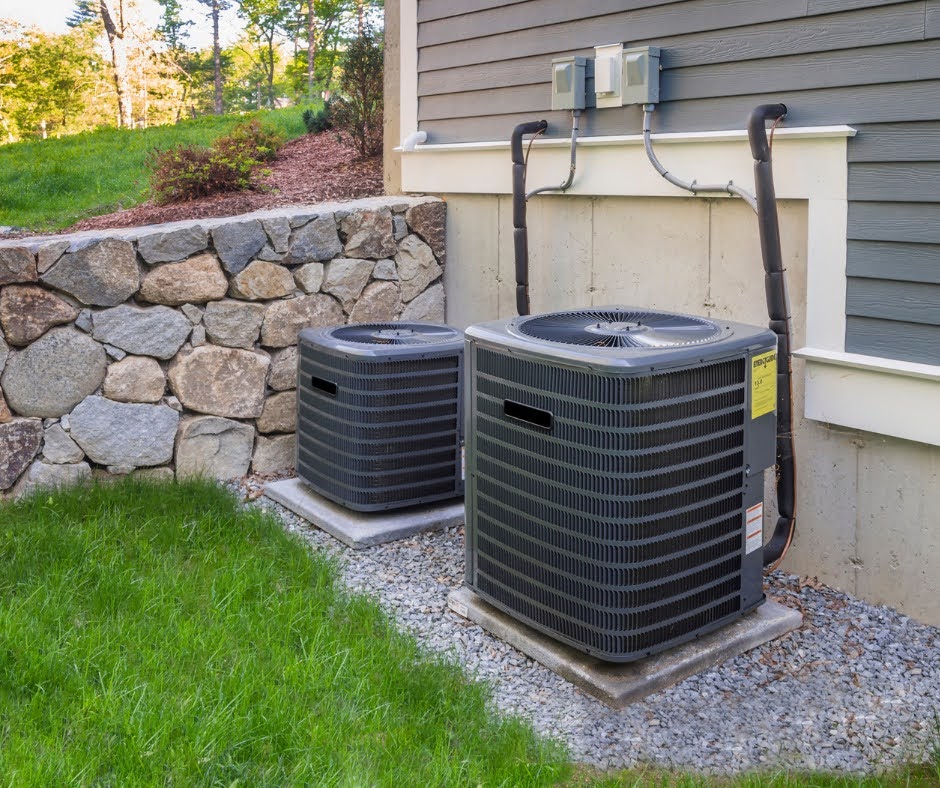Is your air conditioner too big for your home? An over-sized or more powerful AC system may seem like the ideal way to keep your family comfortable, but the biggest system possible isn’t always better. Take a look at the problems an incorrectly sized air conditioner can cause and how an HVAC contractor can help.
Uncomfortably Humid Home
Is your home unbearably humid? Central air conditioners don’t just cool the air. These systems also remove excess humidity. While an over-sized AC system may quickly cool the interior air, it may not efficiently remove the moisture. This leaves your home damp and uncomfortable.
If your AC system is properly sized, a drop in thermostat setting will result in a cooler, less humid home. An improperly sized (over-sized) unit won’t allow this to happen. Instead, the central AC will turn on, quickly cool the air, and just as quickly turn off. These mini cooling cycles won’t last long enough to effectively remove the moisture.
Even though moisture and temperature are two different aspect of your home’s indoor air, a humid environment can feel warmer than it really is. The resulting muggy or sticky feeling may make it more likely you’ll turn thermostat down to a lower setting, which can waste energy.
Mold and Mildew Growth
Not only is a humid home uncomfortable, but the excess moisture can also support mold or mildew growth on walls and other solid surfaces. According to the U.S. Environmental Protection Agency (EPA), the ideal indoor humidity level should fall between 30 and 50 percent. While a dehumidifier can remove some of the moisture, it won’t correct the AC sizing problem.
Beyond the aesthetic issues of mold growth on your home’s walls and other interior spaces, the fungal spores can affect household members who have some types of respiratory conditions or allergies. Even though mold is associated with adverse health-related effects, you can take steps to reduce the risks or prevent moisture-induced growth.
Contact a qualified HVAC professional to assess the indoor air’s humidity level before your incorrectly-sized system causes mold growth or other moisture-related issues. The contractor will evaluate the size of the air conditioner versus your home’s square footage, insulation, and other similar indoor air issues. If the AC system is too large, the contractor can recommend a replacement.
Energy Inefficiency
Humidity and mold growth aren’t the only potential problems the constant cycling of your incorrectly-sized AC system can cause. The constant on and off action of the air conditioner can force the system to work harder. This increases your home’s energy needs.
The average American household devotes six percent of the total energy use to cooling, according to the U.S. Department of Energy. Even though a high-efficiency air conditioner can reduce the amount of energy your home uses (and can lower electricity bills), an over-sized unit may have the opposite effect.
If your new energy-efficient air conditioner costs more to use than your older system, ask a qualified contractor to evaluate the size. It’s possible the HVAC company that initially installed your new system didn’t size it correctly. A second opinion can help you to better understand your home’s cooling and energy needs.
Excessive Wear and Tear
Along with energy use, the constant on and off cycling of an over-sized system can lead to excessive or premature wear and tear. This can cause your AC system to fail when you need it most or result in expensive repairs. If your system needs constant repairs or you need to replace parts more often than necessary, ask an HVAC contractor to evaluate the air conditioner’s size.
Do you need a new air conditioner? Contact Jeb Air Solutions for more information.
